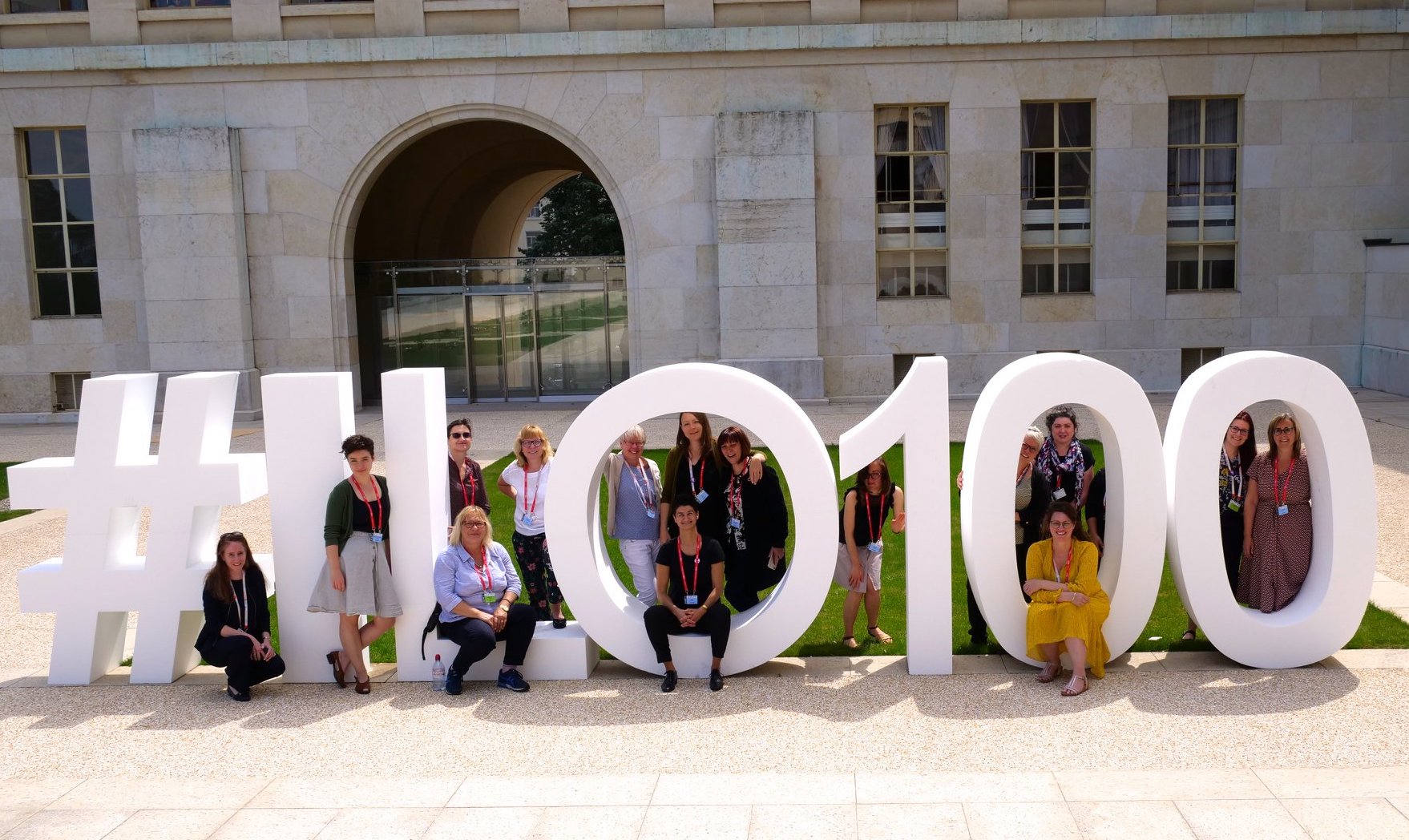
The first ever international standard on violence and harassment in the world of work has been adopted at the centenary International Labour Conference (ILC) of the International Labour Organization (ILO).
The adoption of the new standard comes at the end of a two-year process, following the first discussions last year and comes after years of campaigning by the ITF and global trade unions, which saw ITF unions take action as part of the collective push to secure the convention through national lobbying of governments, campaigning to raise awareness and support, and providing evidence about the impact of violence against women in transport workplaces.
The new international law takes the form of convention 190 (a legally binding international treaty) and recommendation 206 (non-binding guidelines on how the convention can be applied).
The ITF had a delegation at the ILC that included Valérie Latron from France and Lisa Kelly from Canada and was led by Claire Clarke and Neha Prakash from ITF women. Ekaterina Yordanova from Bulgaria, a member of the standard-setting committee on violence and harassment in the world of work, and a key player in the negotiations between the EU-28 and the workers’ group, and Kalthoum Barkallah from Tunis attended the ILC as part of their national delegations.
The chair of the ITF women transport workers’ committee Diana Holland, along with ITF women’s Jodi Evans, was part of the experts group and earlier discussions that laid the foundations for this achievement. Ms Holland said: “This historic new global standard must mean action to end and prevent violence and harassment in the world of work. The new legal instrument must mean lasting change for working people and their families. The lives of ITF union members, and in particular women transport workers, will be improved as a direct result.
“The new ILO standard identifies the right of everyone to a world of work free from violence and harassment, including gender-based violence and harassment, and it applies to all sectors, whether private or public, both in the formal and informal economy, and whether in urban or rural areas. Transport is particularly recognised.
“Furthermore, it makes it clear that the world of work is bigger than the workplace, and includes incidents in the course of, linked with or arising out of work, including in places where the worker uses sanitary facilities, and when commuting to and from work. This is really important for all transport workers – men and women.
“It also recognises the effects of domestic violence and the need to mitigate its impact in the world of work, outlining a number of measures that could be taken. This is a major breakthrough.”
ITF general secretary Stephen Cotton was at the ILC to see the vote: "We have had a momentous two weeks at the ILO centenary.
"We have seen what can be achieved when the true spirit of the ILO tripartite model is put to full effect.
"Employers, governments and workers; all debated their strongly held positions passionately. It may not always have been pretty but ultimately the integrity of all parties has been respected and we have had massive achievements.
"We’ve made a powerful statement on the future of work, securing the workers' voice at the table, as we look to build a better future and manage a fair transition.
"The convention against violence displayed just how much violence and harassment can be a barrier, particularly for women, to access and advance in the labour market. It is a historic new international law that provides a strong foundation to ensure that employment is based on safe and decent work, where no worker is left unprotected.
All trade unions, governments and employers must now work together to make this a reality. I congratulate ITF women and the ITF women transport workers' committee for their hard work that led to this victory today. It’s been an amazing team effort with support from our women's team, legal team, and extraordinary commitment from our affiliates to get this convention adopted. Now the ITF will be backing ITF women all the way in their effort to go to the next stage to make this agreement lead to a better life for workers.”
As part of its priority to end violence against women transport workers, the ITF’s women’s department will now work with affiliates to campaign for the ratification and implementation of the convention and recommendation. To get involved in this campaign please email women@itf.org.uk.

Documents from the ILC standard setting committee are available here.


မွတ္ခ်က္အသစ္မ်ားတင္ျခင္း